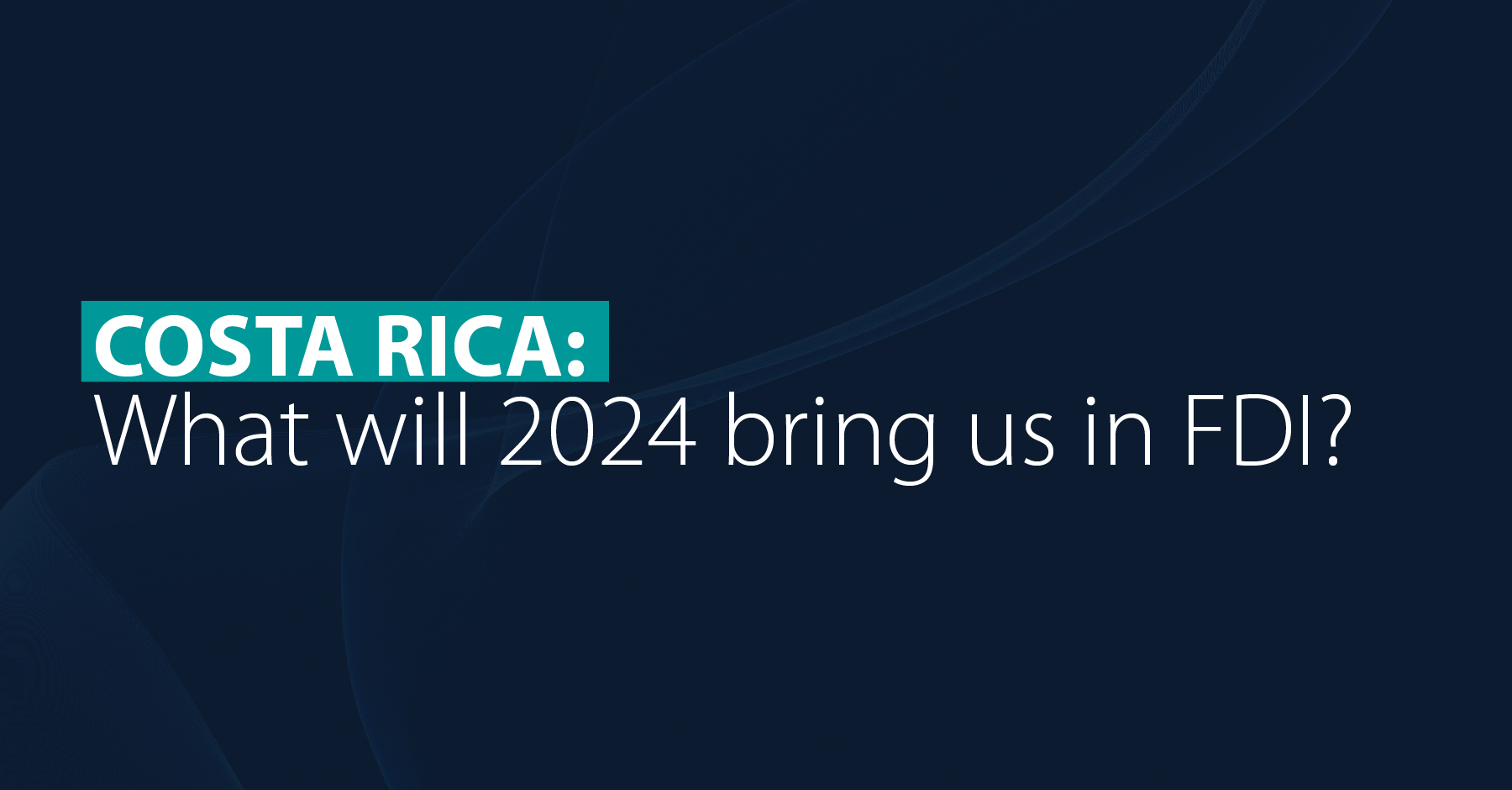2023 was undoubtedly a year of significant changes in the Foreign Direct Investment (FDI) attraction model that the country had sustained for years. Although it is still premature to evaluate the results of these changes, the beginning of the year always gives us the impetus to review in retrospect the work carried out in the previous year and to consider the objectives for the year ahead.
In December 2023, the Ministry of Foreign Trade announced that FDI attraction for regions outside the Greater Metropolitan Area (GAM) doubled. According to information provided by the institution for the first three quarters of the year, out of 56 investment projects established in the country during that period, 12 chose a location outside the GAM, constituting a milestone in investment attraction. In percentage terms, FDI experienced a 16% growth compared to the year 2022, which, translated into monetary figures, implies an amount close to $3 billion, the goal set by the Ministry.
Of this amount of FDI, the free zones continue to play a leading role, generating about 51%, the other sectors being companies of the established regime, real estate, tourism, financial services, and others.
The balance of 2023, which faced new challenges in attracting FDI, proved positive. It is now time to start working on the goals for 2024 and understand what the future holds for the year ahead. fDi Intelligence of the Financial Times points out that geopolitical and macroeconomic uncertainties continue to impact the attraction of FDI globally; however, this remains an excellent opportunity for developing economies.
The expectation of falling interest rates in the United States and Europe and the consequent access to capital more economically could cause multinationals to seek to diversify their investments in countries with attractive economic growth rates.
In this context, Costa Rica must commit to remaining on the map of FDI flows, reinforcing the search for projects in different latitudes but also continue having a value proposition as a country. Costa Rica is attractive for its tax incentive regime but also for its highly trained, multilingual talent with soft skills. However, in the search for investment destinations, the economic cost will always be a determining factor. That is where we are losing competitiveness.
Along these lines, an urgent review of the economic impact on Free Zones of the colon’s increase in dollar value since mid-2022 is necessary. The dollar’s fall impacts free zones, the export sector, and FDI in general. Exchange rate policy directly affects operational costs for companies in these sectors, primarily the increase in labor costs.
This issue has been worrying the business sector for several months. More recently, the PROCOMER Board of Directors raised with the Central Bank the need to implement urgent measures to stabilize the exchange rate and maintain the competitiveness of this sector.
In 2023, Costa Rica attracted 12 times more FDI projects than expected for the size of its economy. Now it is time to work on retaining the projects that we already have established in the country, making them grow, and continuing to be successful in attracting new investments, hopefully for areas outside the GAM where economic growth is so necessary.
Adelina Villalobos
Partner
Costa Rica
E-mail




